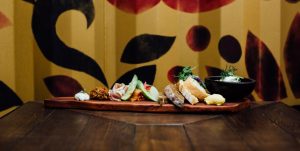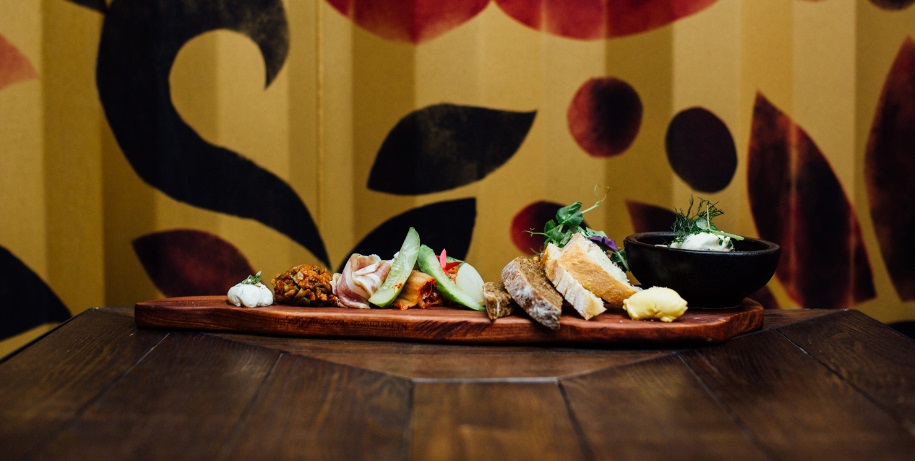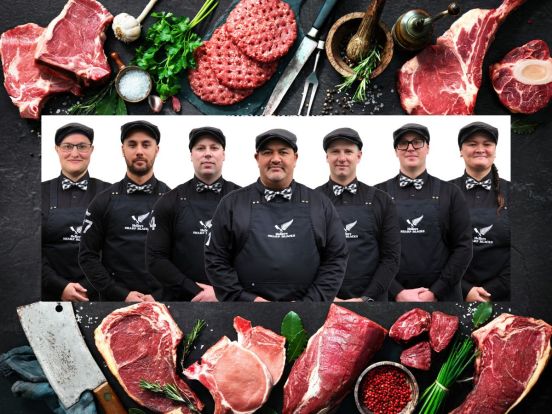 Time-pressed diners don’t need to forgo the tenets of the slow food movement as Russian-inspired Ponsonby venue Vodka Room launches a $20 shared lunch board whose components take a week to bring together but come out minutes after you order.
Time-pressed diners don’t need to forgo the tenets of the slow food movement as Russian-inspired Ponsonby venue Vodka Room launches a $20 shared lunch board whose components take a week to bring together but come out minutes after you order.
Elements of the ‘Rush In Lunch Board’ are churned, cured or fermented on-site under the eye of head chef Murray Wiblin, formerly head chef at Hotel DeBrett and executive chef charged with the launch of Ebisu, Tyler St. Garage and Fukuko.
“Perfect for a quick, shared lunch, every element represents our strongly held slow-food principles,”says Wiblin. “This is food done the old-fashioned way, prepared by hand for not just nourishment but love, warmth and survival; all with an accessible price point.”
A border with Korea has influenced Russian cuisine and the adoption of kimchi, a traditional side dish made from salted and fermented vegetables. Vodka Room’s version utilises Asian cabbage, salted and pressed for two days then dried before being rubbed with a house-made paste comprised of spicy chili flakes, garlic, sugar and salt.
“In Russia and Korea this would then be put into large clay pots before being buried in the ground with just the lid popping out for easy access and consistent temperature for slow fermentation,” says Wiblin. “Ours is vacuum-packed and kept on ice.”
Kneaded by hand, the accompanying bread will change to reflect shifting seasons; its current incarnation incorporating toasted caraway, cumin, coffee grounds, dark cocoa and unrefined molasses. The kimchi and pickles are fermented on-site, the butter is churned and cultured in the kitchen and the salo, preserved pork belly, is cured there.
Akin to an Italian lardo, a cured pork back fat with very little meat on it, Wiblin explains that the salo is so soft it literally melts in the mouth. “We tried many varieties before settling on a Spanish acorn fed pork which has an additional creamy nuttiness,” he says. “Cured with a mix of salt, pepper, raw garlic and bay, we leave it in a dark cool place for days before washing off and freezing, allowing it to be cut wafer-thin.”
Ikra or ‘Poor Man’s Caviar’ uses a variety of seasonal vegetables added in a carefully timed sequence to cook slowly in a large pot. The addition of smoky paprika, zesty lemon, tomato, garlic, fresh herbs and cider vinegar bring this wonderful combination alive. “We then balance the intense flavours with a whipped soft goat’s cheese combining it with local clover honey, thyme and Tahitian vanilla,” says Wiblin. To round out each hand-cut New Zealand native wood board, a main component dish of either shashlik (chargrilled slow-cooked beef feather blade or pork belly), vegetarian stroganoff (a mushroom gnocchi dish), or kotleta (a light fish cake) completes the Russian antipasti. Locally-sourced produce is used whenever possible and the main components change with seasonal abundance.








